Chad Rigetti
Synthetic weather radar using hybrid quantum-classical machine learning
Nov 30, 2021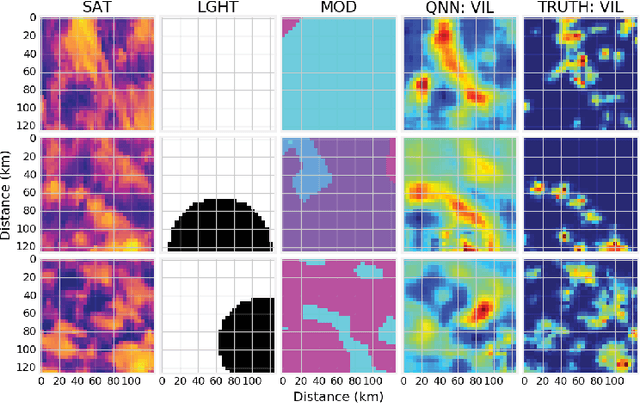
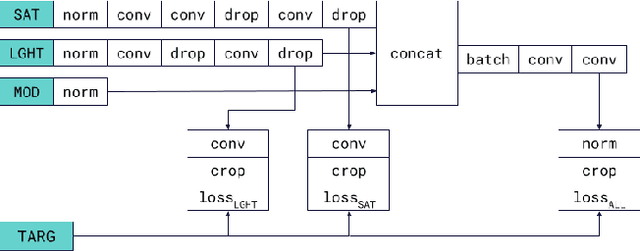
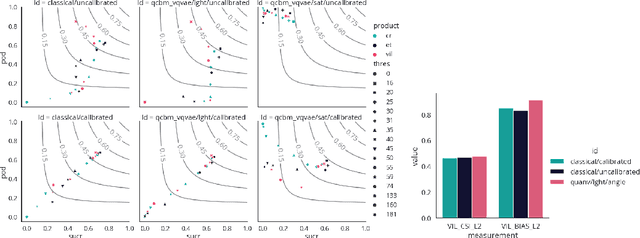

Abstract:The availability of high-resolution weather radar images underpins effective forecasting and decision-making. In regions beyond traditional radar coverage, generative models have emerged as an important synthetic capability, fusing more ubiquitous data sources, such as satellite imagery and numerical weather models, into accurate radar-like products. Here, we demonstrate methods to augment conventional convolutional neural networks with quantum-assisted models for generative tasks in global synthetic weather radar. We show that quantum kernels can, in principle, perform fundamentally more complex tasks than classical learning machines on the relevant underlying data. Our results establish synthetic weather radar as an effective heuristic benchmark for quantum computing capabilities and set the stage for detailed quantum advantage benchmarking on a high-impact operationally relevant problem.
Automated quantum programming via reinforcement learning for combinatorial optimization
Aug 21, 2019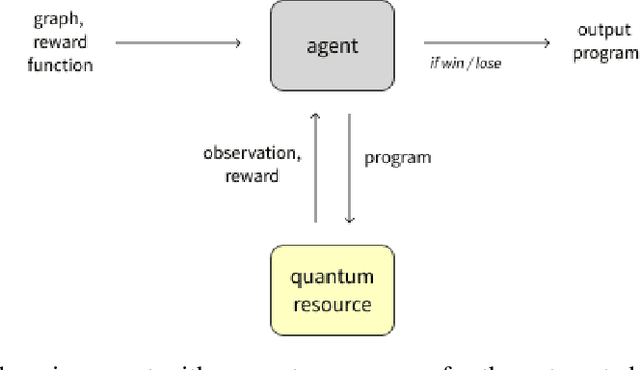
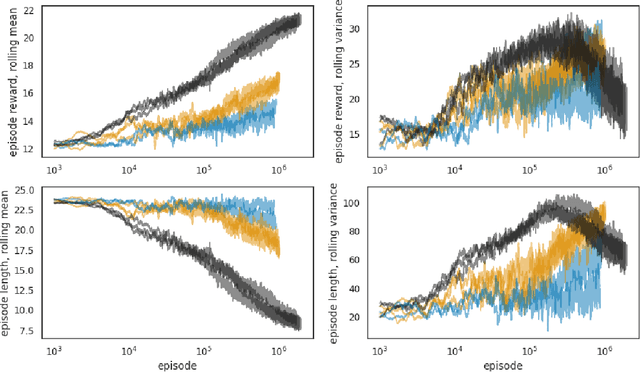
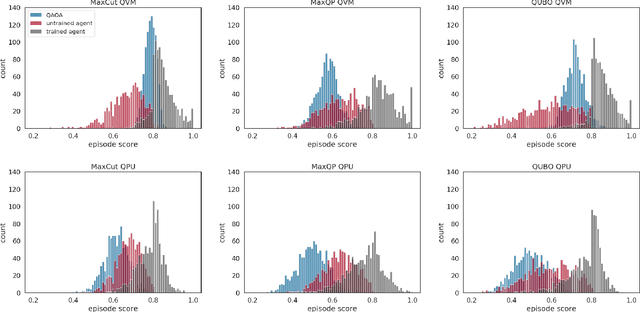
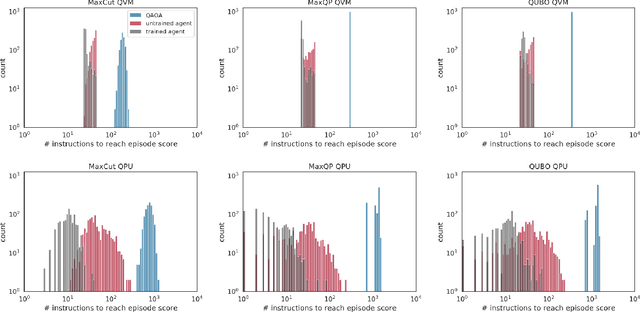
Abstract:We develop a general method for incentive-based programming of hybrid quantum-classical computing systems using reinforcement learning, and apply this to solve combinatorial optimization problems on both simulated and real gate-based quantum computers. Relative to a set of randomly generated problem instances, agents trained through reinforcement learning techniques are capable of producing short quantum programs which generate high quality solutions on both types of quantum resources. We observe generalization to problems outside of the training set, as well as generalization from the simulated quantum resource to the physical quantum resource.
 Add to Chrome
Add to Chrome Add to Firefox
Add to Firefox Add to Edge
Add to Edge